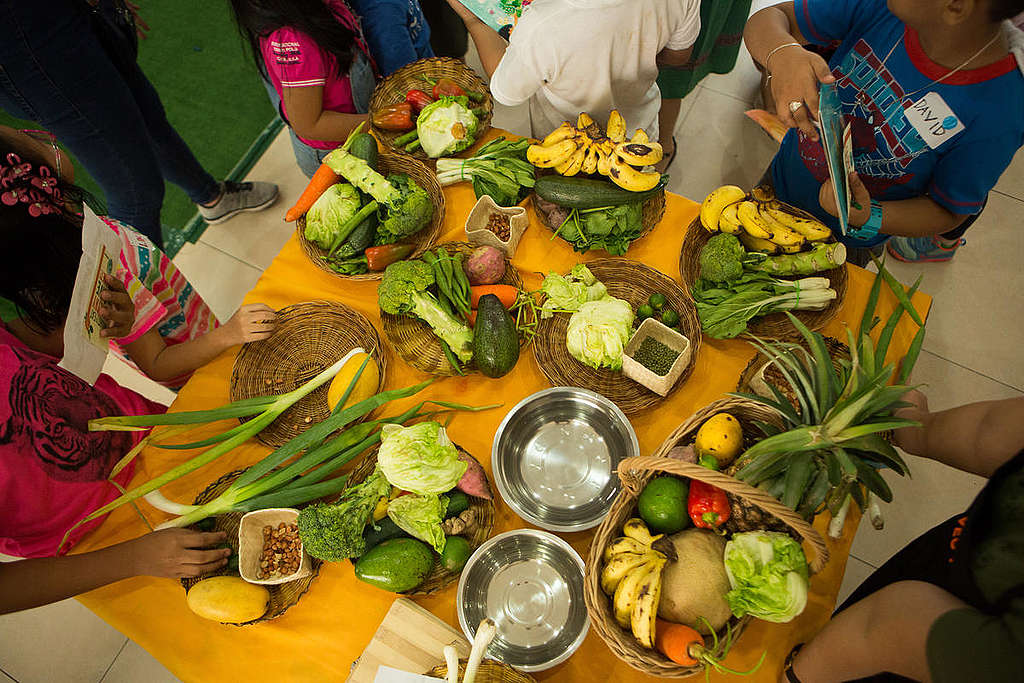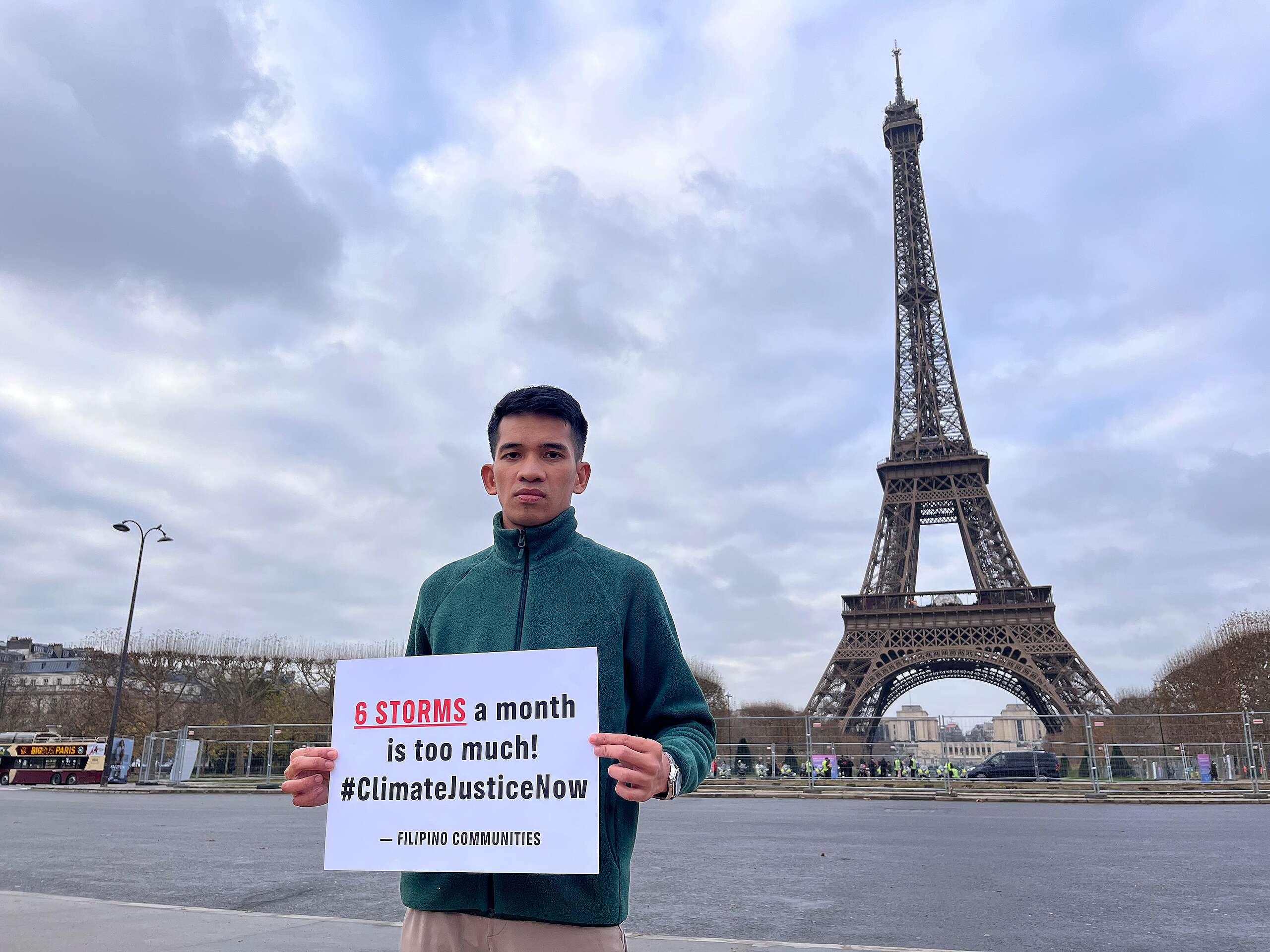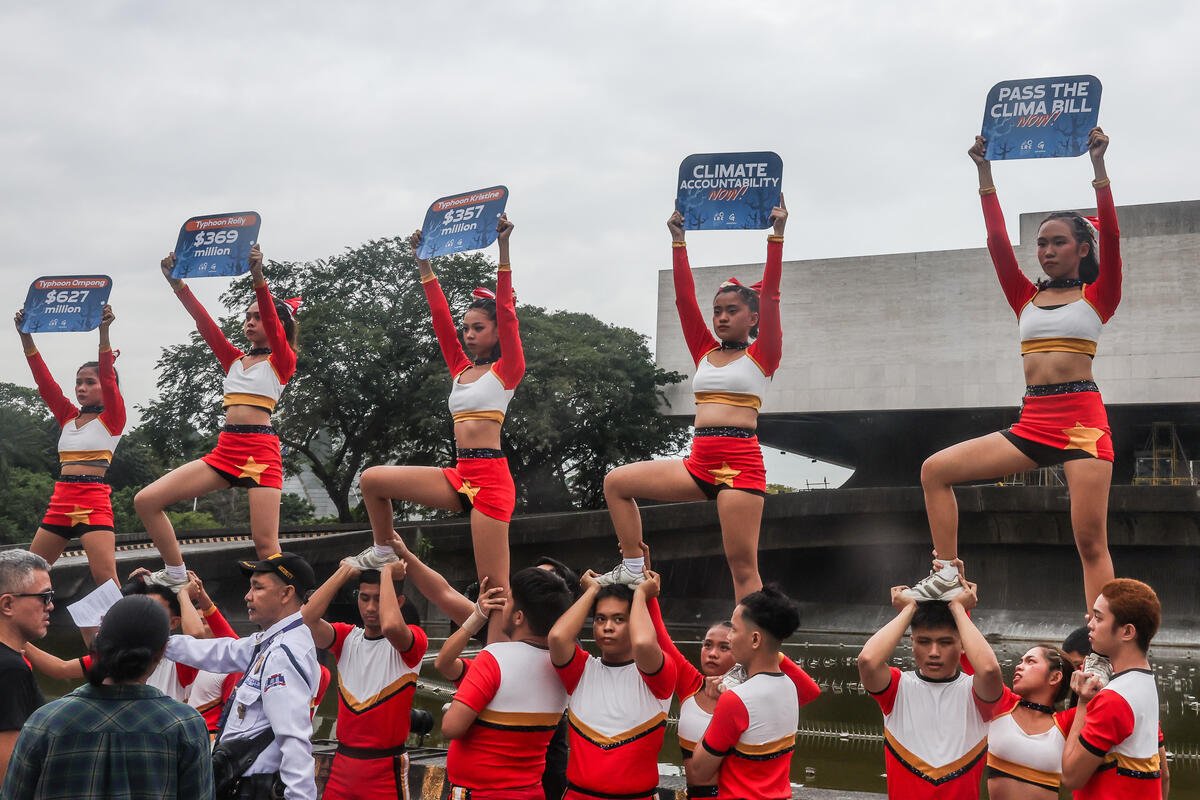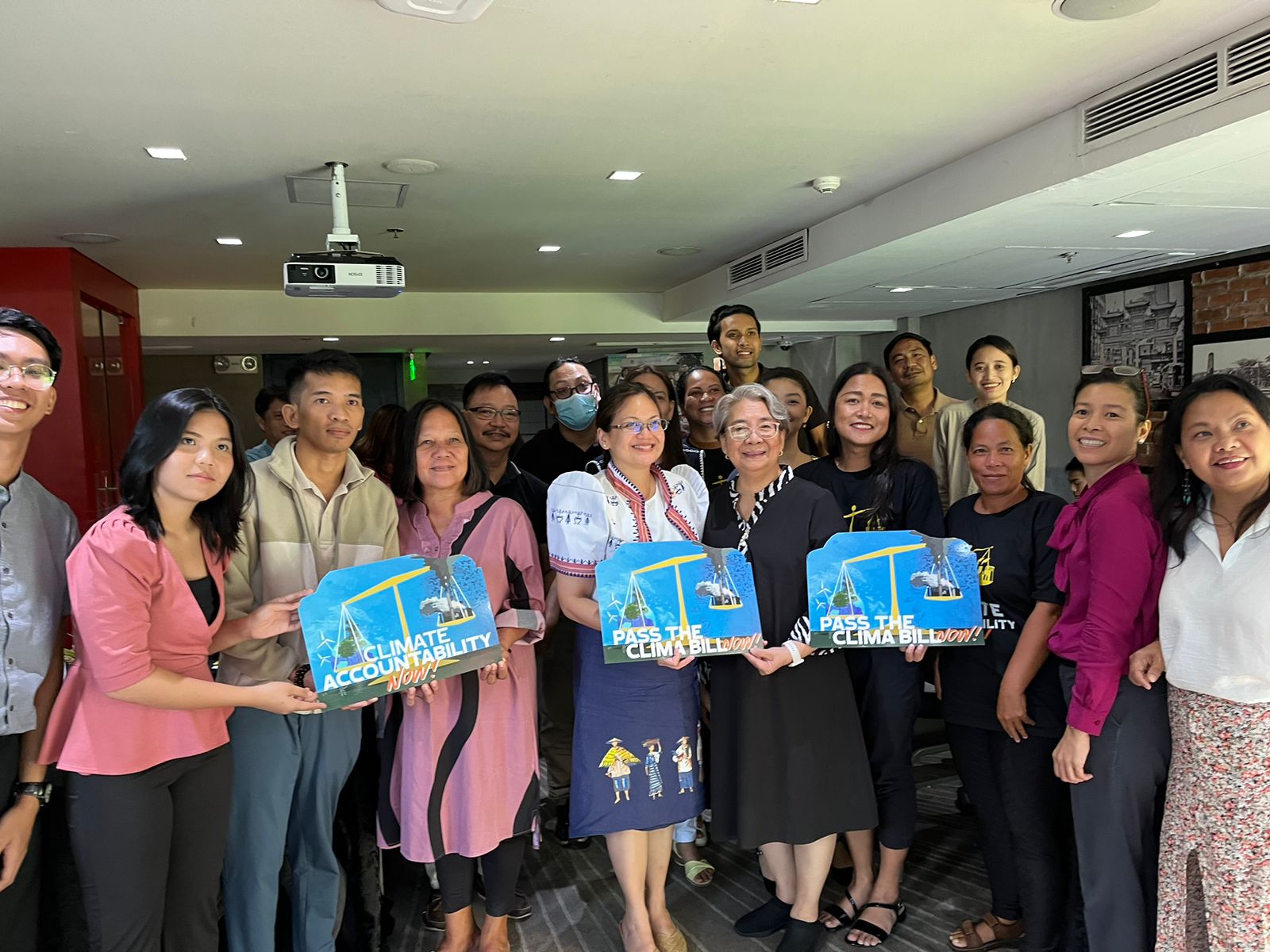24 July, 2021 Manila—Greenpeace Philippines strongly denounced the approval of genetically modified “Golden Rice” (GR) for commercial propagation,[1] and called on Department of Agriculture (DA) Secretary William Dar to reverse the decision and represent the interests of Filipino farmers and consumers.
The group said the DA should prioritize strategies to diversify food production which ensure Filipinos’ access to nutritious, healthy, balanced diets that also address problems such as malnutrition and Vitamin A deficiency.[2]
“The continued approval of genetically modified ‘GM’ crops including so-called ‘Golden Rice’ will further drag down farmers amid climate and COVID struggles,” said Wilhelmina Pelegrina, Senior Campaigner for Greenpeace Southeast Asia. “The DA needs to ensure that farmers are central in a green and just recovery from the pandemic, and are supported by resilient food and farm systems in the face of the climate emergency. Instead of relying on GM crops such as GR that have no proven benefits to farmers and consumers, the DA should promote ecological agriculture that works with and for farmers, and which offers Filipinos diverse grains, fruits, and vegetables for diverse diets, ensuring food and nutrition security.”
The GM rice variety was approved despite longtime opposition from Filipino farmers, scientists, consumers, health advocates, and environmental groups who have clamored for stricter regulatory systems for GM crops on the basis of the precautionary principle. The Philippines, through the DA’s Bureau of Plant Industry (BPI), now becomes the first country to issue a commercial approval for the GM crop.
In 2019, farmer groups together with environmental and other civil society organizations, including Greenpeace Philippines, submitted formal appeals for the DA to revoke their earlier approval giving GR the greenlight for food, feed, and for processing. The groups cited: 1) the incomplete data submitted by the project proponents, and 2) the lack of transparency and adequate public participation throughout the approval process.[3] However, the groups did not receive any substantial reply to the appeals and no further public consultations were conducted.
Greenpeace noted that the concerns of farmers, indigenous peoples, religious groups, youth, mothers, consumers and civil society groups were not considered at any stage of the approval process. The process also failed to take into account the potential socio-economic impacts to farmers and indigenous peoples, as well as to local culture, ethics, and risks to social cohesion. Moreover, the assessment did not cover what the impact of GR will be on further loss of markets for farmers due to crop contamination from genetically modified species.
Greenpeace believes that the approval process for genetically modified organisms in the Philippines should abide by the precautionary principle, and provide standards for safety and security of our citizens and the food we grow and consume. This process must not discount potential threats and should not be biased towards approval at the expense of safety considerations. Greenpeace is calling on the DA to instead support sustainable and ecological food systems that are resilient and that holistically address the challenges related to livelihoods, health, and nutrition.
“This latest development has once again exposed the DA’s rubber stamp approval process for corporate-controlled GM crops. We need to put a stop to this system that blatantly disregards the interests of farmers and consumers,” said Pelegrina “We need a DA that stands by Filipino farmers—the main stakeholders who should have been central in the GM safety assessment processes.”
Notes to editors
[1] The Department of Agriculture-Philippine Rice Research Institute (DA-PhilRice) announced that a biosafety permit for propagating the Golden Rice has been issued on July 21, 2021.
[2] Proponents at the Philippine Rice Research Institute (PhilRice) and the International Rice Research Institute (IRRI) claim that Golden Rice is designed to counter Vitamin A deficiency (VAD). However, Greenpeace and local allies maintain that there are no concrete studies on Golden Rice’s efficiency to address VAD. Golden Rice does not address the underlying causes of VAD, which are mainly poverty and lack of access to a healthy and varied diet. Solutions to fight VAD, such as providing people with nutritious and diverse food from the practice of ecological agriculture, are already available and have been proven to be safer for environment and human consumption.
[3] Greenpeace submits formal appeal to Dept. of Agriculture to revoke “golden rice” approval | December 2019
Media contact
Angeli Cantillana, Communications Campaigner, Greenpeace Philippines
E: [email protected]; M: +63 998 595 9733
Wilhelmina Pelegrina, Senior Campaigner, Greenpeace Philippines
E: [email protected]; M: +63 917 530 8507




